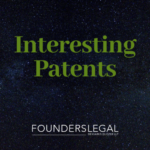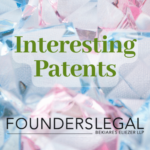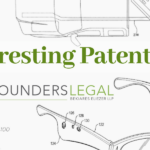CAN I INFRINGE ON A PATENT APPLICATION THAT IS CURRENTLY PENDING?
Clients often present ‘patents’ they found through an Internet search and ask if they infringe the subject matter of the patents. This is a very loaded question that is difficult to answer. But before even getting to an answer, it is important to understand what the “patent” document found by the client actually is.
In particular, it is important to distinguish a granted patent from a patent application publication. A granted patent entitles the patent owner 20 years of rights to exclude others from making, using, and selling the patented invention (as listed in the claims portion of the granted patent). A patent application publication only discloses to the public that the applicant has applied for a patent; it does not mean that a patent has been granted.
Both patent applications and granted patents are published. This means that a single patent filing will publish twice if it passes examination: first 18 months after the application was filed (often prior to commencement of the patent examination) and again after examination has determined that the patent application is to become a granted patent. The first publication is meant to put the public on notice that a patent is pending examination, while the second publication is meant to put the public on notice of an actual granted patent.
Almost every non-provisional patent application that is filed at the USPTO is published 18 months after its earliest filing date (whether the filing date of a related provisional or the filing date of the non-provisional patent filing itself). Sometimes, and for strategic reasons, the patent applicant may request that the patent application remain unpublished unless a patent is granted (in which case publication occurs post-patent-grant).
Until a patent is granted, it is hard to determine what activity would constitute infringement – simply because we do not know:
1) whether the patent application will be granted as a patent by the patent examiner; and
2) what scope of patent protection will ultimately be granted to the patent application.
These are important considerations because if the patent application will not be granted by the patent examiner, there is no issue of infringement. Additionally, the scope of protection is difficult to ascertain because the subject matter an applicant hopes to obtain from a patent (i.e., the published patent application) usually differs from the subject matter that is actually granted (due to patent examination requirements).
So, if you are trying to determine if you may be potentially infringing a patent application, it is important you monitor the application (and any other related applications) to see what might issue as a granted patent. Until then, you may act at your own discretion, knowing that there is a risk of patent infringement if the patent is granted. Unless a patent is granted, infringement cannot occur.
If you are interested in more detail related to your situation it is best to speak with an attorney.




